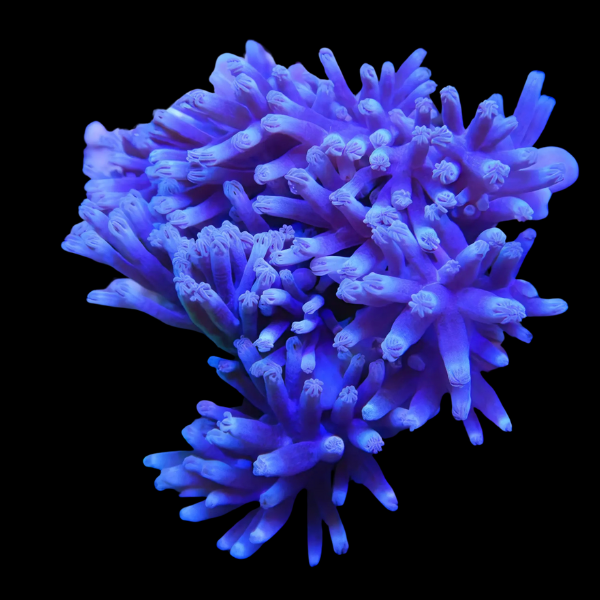Corals
Help and advice on shopping for: Corals
What is coral?
While corals may look like colourful plants that sprout from the ocean floor, they’re actually animals! Making up a single coral are thousands of individual creatures known as polyps. These polyps use chemicals found in seawater to create protective exoskeletons that, over time, grow and intertwine with other corals to form expansive and dense coral reefs.

Are there different types of coral?
There are more than 6,000 species of coral found across the world, and many of those can be kept in reef tanks. The coral that’s commonly available in the reef keeping hobby can be split into three main varieties: Large Polyp Stony Coral (LPS), Small Polyp Stony Coral (SPS), and Soft Coral.
LPS Coral: These are hard corals with solid, calcium carbonate-based skeletons that are left behind when they die. They have large (or long) polyps/tentacles, significantly larger than SPS corals. They’re great choices for beginners and are, typically, easier to keep than SPS corals.
SPS Coral: These are also hard corals with solid, calcium carbonate-based skeletons, but they’re polyps/tentacles are smaller than those found on LPS corals. They’re more difficult to care for than LPS corals, but if given the proper care they can be incredibly rewarding.

Soft Coral: These corals don’t have calcium carbonate-based skeletons and are, as a result, soft and bendable. They’re perhaps the most suitable corals for beginners and a great introduction to coral keeping in general.
Is coral hard to keep?
No, provided you have the correct equipment and can maintain the most optimal water parameters, coral is easy to care for! Some types are easier to care for than others, and if you’re new to corals it’s highly recommended that you start with soft corals before taking on the challenge of LPS corals and, eventually, SPS corals. The most important things to bear in mind when it comes to keeping coral is lighting and water chemistry. For more information about how to look after coral, check out our help guide on the topic here.
















